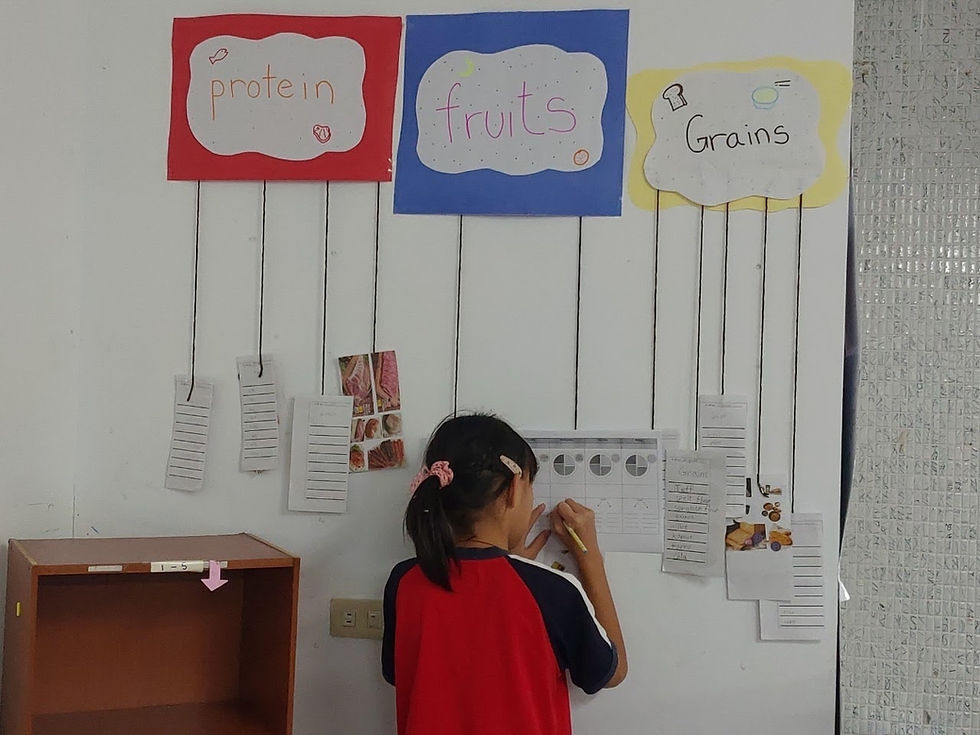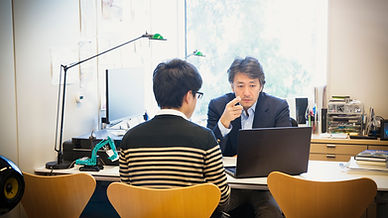Introduction
I'm Julia Nikol, a licensed teacher and school counselor with ten years of experience in education. I've worked both in the Chicago Public School system and abroad in countries like Iceland, Korea, China, Mexico, and Russia, teaching students of all ages, ranging from pre-K to high school. During my time as an educator, I've primarily focused on special education, English Language Learning (ELL), and general education.
I am passionate about the field of education and am now in transitioning into my first year of college counseling. My goal is to work with my current students and assist them in preparing to apply for and study in English-speaking universities abroad.
Though cultural differences affect the way teaching and counseling look in different places, every successful school environment depends on a few non-negotiables: a bond of parent-teacher-student trust, efficient and effective workflow, and aligned values between school administrators and educators. I'm prepared to set up students, teachers, and administrators with the tools needed to produce consistently incredible results.
ASCA National Model
Define: This component of the ASCA National Model serves as a pivotal point in the creation of a comprehensive school counseling program. Its central focus is to identify and prioritize the academic, career, and social/emotional needs of students in the school. This process allows school counselors to develop a clear vision, mission and goals that align with the school's overall mission. ASCA Mindsets & Behaviors for Student Success and the ASCA School Counselor Professional Standards support school counselors in meeting the developmental needs of students. This component provides school counselors with guidelines on how to use these instruments and how to integrate them into practice. The ASCA website and published books are accessible resources for counselors to reference these foundational materials.
Manage: Management provides school counselors with a framework for organizational guidance and tools to shape the development of a student-oriented, needs-based comprehensive plan. Self-assessment and program assessment are crucial when it comes to management so that counselors can identify their program's strengths and weaknesses. This component enables the use of data to create short- and long-term program goals, including professional growth plans that align with counseling objectives.
Deliver: The deliver component of the ASCA Model is dedicated to outlining the methods and process of effectively communicating a comprehensive school counseling program to students. The program is executed through both direct and indirect student services, complemented by relevant administrative activities.
Assess: The Assess component focuses on the collection, analysis, and reporting of valuable data to evaluate the effectiveness of the program and identify areas that need improvement. This component enables school counselors to use quantitative and qualitative data to make informed decisions and modifications to the school counseling program. By using feedback received, counselors can tailor and enhance the delivery system to effectively meet the evolving needs of their students.






































Define
The vision of the ERRC School Counseling Department is to be a catalyst for student success, fostering a safe and supportive community that empowers students to become lifelong learners, responsible global citizens and compassionate individuals.

In line with the ASCA National Model's Define component, our counseling department focuses on the three Developmental Domains: Academic, Career, and Social-Emotional Learning. We work closely with all stakeholders to prioritize the academic needs, career aspirations, and social-emotional well-being of our students.
Academic Domain: Focuses on helping students develop the academic knowledge, skills, and attitudes they need to succeed in school and beyond. School counselors work with students to set academic goals, develop study skills, and overcome any obstacles that may be hindering their academic progress.
Career Domain: Centered around helping students explore their career aspirations and develop the skills and knowledge they need to achieve their goals. School counselors help students understand their interests, strengths, and values and how these might relate to future careers. Counselors also provide information on career options and assist with college and career planning.
Social-Emotional Learning (SEL) Domain: Allowing students develop the social and emotional skills they need to succeed in school and in life. School counselors help students understand and regulate their emotions, build positive relationships with others, and develop effective communication and problem-solving skills. SEL also includes character education, which teaches students about ethical decision-making, responsibility, and integrity.


The mission of the ERRC School Counseling Department is to provide all students with equitable access to a comprehensive, data-informed, and developmentally appropriate school counseling program that fosters academic, career, and social-emotional growth.

In terms of our ethical obligations, confidentiality is of utmost importance to us. We maintain strict confidentiality with respect to all students' personal information and never share confidential information unless it is necessary to prevent serious harm to the student or others. However, it is important to note that there are limits to confidentiality. Specifically, if a student discloses information that suggests the student is at risk of harming themselves or others, or if there is a risk of child abuse or neglect, we are mandated to report it to the appropriate authorities.
Manage


The Manage component serves as a framework that provides organizational guidance and tools to shape the development of a comprehensive, student-oriented, and needs-based counseling program. At ERRC, we recognize that effective management of the counseling program is critical for providing students with high-quality counseling services.
One of the key aspects of the Manage component is ensuring that at least 80% of our counseling program is dedicated to providing direct or indirect services to students. By focusing on direct services such as individual and group counseling, classroom guidance lessons, and consultation with teachers and parents, we can make a significant impact on students' academic, career, and social-emotional development.


Another important aspect of the Manage component is the establishment of an Advisory Council. The purpose of the Advisory Council is to provide guidance and insight to the school counseling program. The Council will consist of stakeholders, such as school administrators, teachers, parents, and students. Their input will help us to better understand the needs of our students and ensure that our counseling program aligns with the overall goals of the school.
At this time, we are requesting volunteers for the Advisory Council. If you are interested in being a part of this important council, please let us know. We welcome anyone who is passionate about helping students to succeed.
The Advisory Council will meet once per quarter in the school's conference room. The first meeting will be held on the third Wednesday of next month at 3 PM. We believe that regular communication and collaboration with the council will help us to constantly evaluate and improve our counseling program to make sure that it remains effective and relevant for our students.
Contact counseling@errcinternationalschool.com for more information on the Advisory Council
Deliver

Direct and Indirect Delivery Models: Our school counseling program includes both direct and indirect delivery models. Direct delivery services include individual and group counseling, classroom guidance lessons, and crisis intervention. Indirect delivery services include consultation with parents, teachers, and administrators, referral coordination, and collaborating with community resources. These models allow us to meet the diverse needs of our students through a range of support services.

Parent Access to Counselor: Parents can access the school counselor on behalf of their children by emailing the counseling office or scheduling a visit to the counseling office through the school's administrative office. They may also contact the school's reception desk to arrange a meeting. Our counselor is always available to listen, offer support and advice, and address any concerns they may have for their child.

Accessing Services: Students can access our counseling services by visiting our counseling office located on the second floor of the main school building. We also offer self-referral forms for students who want to meet with a school counselor, and teachers can refer students to the counseling office as well.

Students and parents are welcome to visit our counseling office throughout the school day, Monday through Friday from 9 AM to 4 PM. Our office staff are always available during the school day to assist students and parents in scheduling appointments with the counselor or to answer any questions they may have.
Assess

Collecting and Analyzing Data: At ERRC, we collect and analyze data from a variety of sources to measure the effectiveness of our counseling program. We use feedback from students, parents, teachers, and administrators, as well as data from student assessments and surveys to assess our program's impact and identify areas for improvement. We also conduct needs assessments to identify the unique needs of our student population and ensure that our counseling services are tailored to meet those needs.

Program Evaluation: At ERRC, we conduct regular program evaluations to assess the effectiveness of our counseling services and make necessary modifications to improve the program. We use data to track the number of students who receive counseling services and their outcomes, as well as feedback from stakeholders on the quality of our services. We also evaluate the effectiveness of our school counseling curriculum, the delivery of our counseling services, and the effectiveness of our referral system.

Monitoring Student Progress: We closely monitor the progress of our students to determine whether our counseling interventions and services are effective. We use a variety of tools to measure progress, including pre- and post-assessments, student self-reports, and teacher observations. We also track attendance and academic performance data to evaluate the effectiveness of our interventions and to identify students who may be struggling and require additional support.

Professional Development: Our counselors are committed to ongoing professional development to ensure they are providing the most effective and evidence-based counseling interventions to our students. We attend conferences, workshops and have regular meetings with other counselors to track research and best practices in counseling. Our counselors also engage in regular supervision, both one-on-one and in group settings to ensure appropriate case load management, self-care and continuing professional growth.
Contact
We at ERRC International School value communication and collaboration with our community. We welcome your inquiries, questions, and feedback. Please feel free to contact us through the following channels:
Address
Contact
Opening Hours
111 Spring Blossom Avenue Chaoyang District
Beijing, China
+86 10-1234-5678
Email:
info@errcinternationalschool.com
Admissions Office:
admissions@errcinternationalschool.com
School Counseling Office:
counseling@errcinternationalschool.com
Mon - Fri
8:00 am – 6:00 pm



